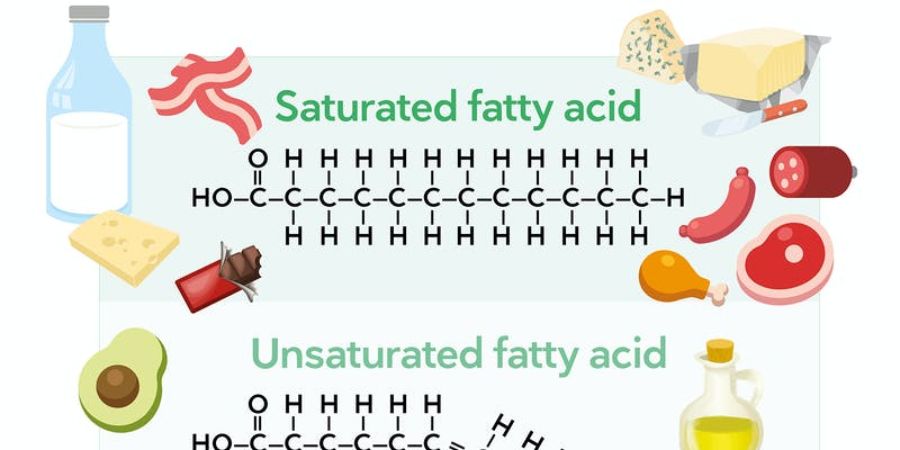

Saturated and Unsaturated Fat - what are the distinctions and what amount would it be a good idea for you to eat of each?
Fats are a fundamental piece of our eating regimen, especially with regards to engrossing other essential supplements and assisting our bodies with working appropriately. The trouble is that not all fats are something similar, and with regards to unsaturated versus saturated fat specifically, there are a couple of interesting points.
The discussion about whether utilization of saturated fat is awful for heart wellbeing has been progressing for a long time.
All fats contain nine calories for every gram, except not all fats are as nutritious as others. Polyunsaturated fats, especially omega-3 and omega-6 unsaturated fats, are required for the legitimate capability of our cerebrums and bodies, while monounsaturated fats assist us with retaining fat-solvent nutrients like nutrients A, D, E, and K. A few fats, like immersed fats and trans fats, have been connected to negative wellbeing results, including metabolic disorder and malignant growth.
SATURATED FAT:
Saturated fat is a solitary fortified carbon chain that is soaked with hydrogen molecules, and that implies that it is typically strong at room temperature.
While the course of hydrogenation transforms unsaturated fats into immersed fats (trans fats) by driving hydrogen into void spaces on the carbon chain, soaked fats are normally along these lines.
While eating immersed fat in overabundance can have negative well-being results, devouring limited quantities of soaked fat with some restraint is fine, so there's compelling reason need to remove your number one food variety to stay away from them.
Saturated fat includes:
fatty pieces of meat such as beef and lamb
some pork and chicken products
dairy products including cream, whole milk, butter, shortening, and cheese
coconut and palm oils
Overconsumption of immersed fats is one of the primary sources of stoutness and related conditions in grown-ups.
"As a general rule, soaked fats are 'terrible fats'," "These are the fats we ought to all eat less of. They will generally be connected to raised terrible cholesterol and this builds the gamble of atherosclerosis which cause coronary illness, including cardiovascular failures and strokes.
As a rule, immersed fat ought to make up something like 5-6% of your all-out day-to-day calorie consumption."
UNSATURATED FAT
There are two kinds of unsaturated fat: monounsaturated and polyunsaturated. Unsaturated fats can advance 'great' HDL cholesterol levels in your body and lessen levels of 'terrible' LDL cholesterol, which can aggregate in veins and corridors and cause high blood pressure.
Foods that are highest in monounsaturated fats include:
Polyunsaturated
These fats come from plant-based sources and include omega-3 and omega-6 fatty acids
Sources of omega-3 include:
"The omega-3 acids in sleek fish are eicosapentaenoic corrosive and docosahexaenoic corrosive," ."Albeit the human body can blend EPA and DHA, it isn't productive at doing this, importance levels will quite often be below. Thus, ensuring you take in sufficient omega-3, either through the eating regimen or by having an omega-3 enhancement, is significant. Omega-3 unsaturated fats are remembered to assist with forestalling the beginning of coronary illness by assisting with bringing down degrees of fatty substances, bringing down pulse, and further developing blood course."
Sources of omega-6 include:
The guidance suggests that 20-35% of your absolute calories ought to come from fat. This works out at around 44g-77g a day on a 2,000-calorie day-to-day diet. Under 10% of your everyday calories ought to come from soaked fat, 15-20% from monounsaturated fat, and 5-10% from polyunsaturated fat.
For the best quality fats, choose insignificantly handled fluid fats. For example, you ought to pick olive oil, which has been displayed to have cardioprotective properties, over cooking with margarine.
Furthermore, searching for better options in contrast to unfortunate food sources that are high in soaked fat can assist you with remaining inside the day-to-day suggested limits.
